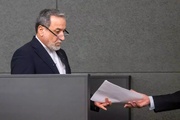The workers at the customs office, harbor, shipping company, and railway station were doing their jobs. Suddenly, a number of shells exploded in the customs office, setting hundreds of automobiles on fire.
These automobiles had recently been bought from some Western countries and were being cleared through customs.
Hundreds of workers in the harbor and the customs office were martyred or wounded.
To the west of Khorramshahr, the commanders of the Iraqi army had a meeting and made the final decision to attack the city, a move which began the 1980-1988 Iran-Iraq war.
Over 500 modern Russian tanks and dozens of personnel carriers headed in the direction of the city with the goal of occupying it.
The Iraqi army’s heavy artillery bombarded the city from Tanomah, a city inside
A number of Basij members tried to stop the enemy’s tanks. However, General Saad Sheetteh had promised Iraqi dictator Saddam Hussein that he would capture Khorramshahr in one week.
The commander of the artillery of the third division of the enemy’s army, Colonel Ahmad Zeidan, gave the order to bomb the residential areas in order to crush the people’s resistance.
The Iraqi army had previously reconnoitered the city using aerial photography. Due to the high population density of the city, hundreds of women and children were killed.
The residents had to evacuate the city. However, Basij troops remained in the city and confronted the enemy’s army.
Although the number of those who remained in the city was not many, they were able to halt the Iraqi army’s advance and keep them outside the city for 36 days. But the pounding of the enemy’s heavy artillery did not cease, and the city fell on October 26, 1980.
After entering the city, the Iraqi forces plundered whatever they could find, especially from the harbor and the customs office, utilizing hundreds of trucks.
The war became more intense every day because a number of regional Arab states increased their financial and logistical assistance to Saddam in order to help him win the war swiftly.
Saddam, with the backing of the leaders of certain Arab states, sought to separate
After a number of military operations, the Iranian forces were able to organize the most successful operation of the first year of the war, which was called the Samen Al-Aemeh operation. This military operation broke the one-year siege of
General Saad Sheetteh, who was the commander of Iraqi operations on the eastern side of the
Iranian troops broke the siege of
That operation led to the liberation of 5500 square kilometers of
During the operation, over 32,000 enemy troops were captured and 16,000 others killed. In addition, 511 tanks were destroyed.
Finally, on May 24, 1982, Iranian forces entered Khorramshahr and ended the occupation. The commander of the Iraqi forces in the city, Colonel Ahmad Zeidan, attempted to flee but was trapped in a minefield which was set up on his orders and killed when he stepped on a mine.
May 24, 1982 was a great day for the Iranian nation because the liberation of Khorramshahr was an Iranian victory over a well-equipped army that has been recognized as a historical day by all the country’s citizens. The victory boosted the morale of the Iranian troops and was a turning point in the war because it gave
(May 24
HK/HG
END
MNA

























Your Comment